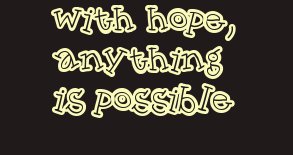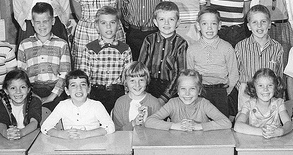
Since yesterday, I have been involved in a conversation on
Will Richardson‘s post
The Future of Teaching.
The first part of this post was originally posted as a comment to The Future of Teaching.
I am getting the idea that we, at least those of us involved in this conversation, are ready to act on new ideas. People have asked for priorities, have asked about where we go from here.
I think that something like this can help us get there. I know that Gervase Bushe has been using Appreciative Inquiry with the Vancouver Public School System. This was published in the Summer 2007 edition of the SFU Business Newsletter, the Executive Edge:
In the last Executive Edge newsletter we told you about a $150,000 three-year research project to study a change management trend called appreciative inquiry. It’s a new process that works to change the way people think – to get them thinking collectively about how they want their organization to operate.
Gervase Bushe, SFU Business associate professor of management and organizational change, who is consulting and studying the process and its outcomes at the Vancouver School Board, reported on the results of the first year of study. “Preliminary indications are that the change process has been so successful that the BC Schools Superintendents’ Association is offering appreciative inquiry training and is also planning an appreciative inquiry summit for Kelowna in August,” says Bushe. What’s more, he says, numerous BC School Districts are planning to use appreciative inquiry in their schools next year.
It’s a powerful change process, based in the very foundations that have been brought up in with Will’s post.
Here is a recent article that Gervase wrote, which I think does a great job at outlining just what Appreciative Inquiry is:
G.R. Bushe (2007). Appreciative Inquiry is not about the Positive.
He talks about the generative nature of AI:
Generativity occurs when people collectively discover or create new things that they can use to positively alter their collective future. AI is generative in a number of ways. It is the quest for new ideas, images, theories and models that liberate our collective aspirations, alter the social construction of reality and, in the process, make available decisions and actions that weren’t available or didn’t occur to us before. When successful, AI generates spontaneous, unsupervised, individual, group and organizational action toward a better future.
If we were to design an appreciative change process for our school systems I think we could find our way to get there…together.
It would begin with a conversation that has already begun not only in Will’s post that I referenced above but in various places across the blogosphere – on LeaderTalk, on Scott Mcleod‘s blog, Kevin Sandridge‘s, Barbara Barreda‘s, Miguel Ghulin‘s, Justin Medved‘s, Dennis Harter‘s, Stephen Ransom‘s, and many others.
Is anyone interested in continuing that conversation? I’d love to be part of the process with you.
Powered by ScribeFire.
 Image: from Firehouse 3rd grade 57-58 Mrs Barrett by Clarkstown67 available on flickr through a creative commons license.
Image: from Firehouse 3rd grade 57-58 Mrs Barrett by Clarkstown67 available on flickr through a creative commons license.
 Image:
Image: 
